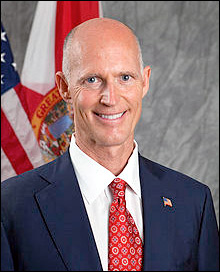By Jim Ellis — Wednesday, May 22, 2024
Primary Results
CA-20: Fong Wins Special Election — California Assemblyman Vince Fong (R-Bakersfield), fresh from winning court challenges that could have prevented him from running for Congress, clinched the special election to replace former House Speaker Kevin McCarthy (R). Upon certification, Fong will be immediately sworn into the House and increase the party division to 218R – 213D. In last night’s election, Fong defeated Tulare County Sheriff Mike Boudreaux (R) by a 60-40 percent count.Fong won big in Kern County, 74 percent at this writing, and carried Fresno County with about 55 percent of the vote. Kings County is too close to call, but the small number of votes won’t greatly affect the outcome. Sheriff Boudreaux easily carried his home county of Tulare.
Next, Representative-Elect Fong will again face Sheriff Boudreaux in the 2024 general election this November in a double-Republican general election contest where he will be favored to win a full term.
Georgia: Runoff in District 3; Reps. McBath & Scott Renominated — Both Reps. Lucy McBath (D-Marietta), running in a newly reconfigured 6th District and David Scott (D-Atlanta) were easily renominated last night.
Rep. McBath defeated Cobb County Commissioner Jerica Richardson and state Rep. Mandisha Thomas (D-Red Oak) with a whopping 85 percent of the vote. Rep. Scott defeated six opponents, scoring 58 percent of the vote and winning renomination outright. Both incumbents will face little in the way of re-election challenges in November.
In retiring Rep. Drew Ferguson’s (R-The Rock/Carrollton) open 3rd District, a pair of Republicans will advance to a June 18 runoff election, though former Trump White House aide Brian Jack came close to winning outright. Jack recorded 47 percent of the vote, just short of the 50 percent plus one vote mark that would have clinched the nomination.
Advancing into the runoff with 26 percent is former state Sen. Mike Dugan. Getting as close as he did to the majority threshold gives Jack a major advantage heading into the runoff. The secondary election will be the deciding factor since the eventual Republican nominee will be the prohibitive favorite to win the seat in the general election.
Idaho: Rep. Simpson Clinches Primary Win — Veteran Rep. Mike Simpson (R-Idaho Falls) won renomination for a 14th US House term, defeating two Republican opponents with 57 percent of the vote, at this writing.
The state’s other House member, Rep. Russ Fulcher (R-Meridian) was unopposed for renomination. Idaho also has no US Senate race in this election cycle.
Kentucky: Easy Night for All Incumbents — Half of the state’s congressional delegation faced minor primary opponents and half were unopposed.
Reps. Morgan McGarvey (D-Louisville), Thomas Massie (R-Garrison), and Hal Rogers (R-Somerset) were all renominated for new terms and will have easy runs in the general election. McGarvey won with 84 percent, Massie recorded 76 percent, and Rogers scored an 82 percent preference figure. All are locks to win the general election.
The same November outlook is on tap for unopposed congressional candidates James Comer (R-Tompkinsville), Brett Guthrie (R-Bowling Green), and Andy Barr (R-Lexington).
Oregon: Bynum Defeats McLeod-Skinner; Salinas-Erickson Re-Match — As expected, state Rep. Maxine Dexter (D-Portland) won the crowded 3rd District Democratic primary, which is tantamount to winning the general election and succeeding retiring 14-term Rep. Earl Blumenauer (D-Portland). Dexter, at this writing, was projected the winner with a 53-25 percent margin over former Multnomah County Commissioner Susheela Jayapal, sister to Washington US Rep. Pramila Jayapal (D-Seattle), and five others.
With the Democratic leadership virtually united in backing state Rep. Janelle Bynum’s (D-Clackamas) attempt to deny 2022 congressional nominee Jamie McLeod-Skinner renomination because they viewed the former as the stronger opponent to 5th District freshman Rep. Lori Chavez-DeRemer (R-Happy Valley), their goal was achieved in a landslide proportion. Rep. Bynum defeated McLeod-Skinner by what looks to be a 70-30 percent margin. Two years ago, McLeod-Skinner won the Democratic congressional primary unseating seven-term Rep. Kurt Schrader.
The CD-5 general election encompasses the state capital city of Salem and the outer southwestern Portland suburbs. This will be one of the most hotly contested House races in the nation.
In the adjacent 6th District, we will see a re-match from the 50-48 percent result posted in 2022. Rep. Andrea Salinas (D-Tigard) will defend her seat against businessman Mike Erickson, who scored a 75 percent victory in last night’s Republican primary. Though the race will be competitive, Rep. Salinas is certainly favored to successfully defend her seat.
In other Oregon results, Rep. Suzanne Bonamici (D-Washington County) was easily renominated for an eighth term with 91 percent of the Democratic primary vote in early returns. Sophomore Rep. Cliff Bentz (R-Ontario) also won renomination for a third term defeating Prineville Mayor Jason Beebe (R) with 81 percent vote preference.






